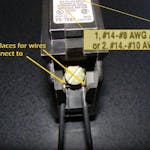Henry Nouwen writes, "In the midst of a turbulent, oftenchaotic, life we are called to reach out with courageous honesty to ourinnermost self, with restless care to our fellow human beings, and withincreasing prayer to our God. To do that, however, we must face and explore ourinner restlessness, our mixed feelings toward others, and our deep-seatedsuspicions about the absence of God."
This is a quote which headlines the National Council of ChurchesEco-justice Lenten reflection series. http://www.nccecojustice.org/downloads/Third%20Sunday%20of%20Lent.pdf.
The program calls on all of the NCCC's 43 million members, andanyone who would join us, to face our restlessness, explore our values, andconfront our suspicions. They invite usto do so as we reflect on the assigned texts for the Lenten cycle and as we doto review our own theology of creation and to deepen our commitment to the transcendentvalues of the one we call the creator.
Today's assigned Lenten text, read by many pastors, priests, orliturgists in today's service is fromJohn 2 (NRSV excerpt): 14Inthe temple he found people selling cattle, sheep, and doves, and themoney-changers seated at their tables. 15Making a whip of cords, he drove all of them outof the temple, both the sheep and the cattle. He also poured out the coins ofthe money-changers and overturned their tables. 16He told those who were selling the doves, 'Takethese things out of here! Stop making my Father's house a market-place!'17\
The NCC site talks about thepassage this way: "…is not the entire created world theHouse of God? Does not God live, move, and breathe in everything God created?Standing on the top of a mountain, looking out at a beautiful valley - you arestanding in the House of God. Standing on the edge of the beach, watching thesun slowly set over the waters - you are standing in the House of God….So whatdoes it mean to cleanse the world then? This is the challenge for us this week- when we think of the cleansing that needs to go on, yes, we need to thinkabout this in our own lives, in our own churches. But also in our world. Withall the decisions we make and actions we take. With the decisions we ask ourpolicymakers to make. When we make personal decisions about our homes, ourpersonal habits - are we considering their impact on God's House? When weorganize our worship, build our church buildings - what understanding of God'sHouse are we living out? When we consider our land, endangered species, climatelegislation -are we taking care to cleanse God's house? Or are themoney-changers still in the temple?" Iwould add the quesiotn is creation a commoditiy or a gift to be stewarded?
I'd like to offer my own quick reflection. This passage is talkingabout the commodification of the holy space, "Stop making my Father's house amarketplace." There is nothing wrong with a marketplace. We need the market.However, not everything should be bought or sold. We have, as a culture, taken onthe cultural metaphor of the commodity. Increasingly congregants think ofthemselves as consumers of the congregation not producers of the congregation. Increasinglycongregations think of themselves as consumers of denominations not producersof denominations and increasingly denominations think of themselves asconsumers of councils of churches, not producers of councils of churches(except, of course, in Minnesota).
This metaphor of consumer of commodity is also too much at play inthe public sector where we are often referred to as taxpayers first andcitizens only as a distant second. The truth is we have been given thisenormous gift of democracy precisely so that we can be producers of government not just consumers of government, producersof the common wealth not just consumers of the common wealth.
This is going to my Lenten mediation today. How do I participatein the commodification metaphor, acting as a consumer not a producer? In whatways do expect to be provided with what I need simply by paying a price? What things do I think I am owed because Ican pay for them, things that really aren't able to be bought? How do I letthat metaphor take over my relationship to the earth, that is, how do I see itnot as the place God dwells but how do I fall into the cultural trap of seeingit as something to be consumed not stewarded?




